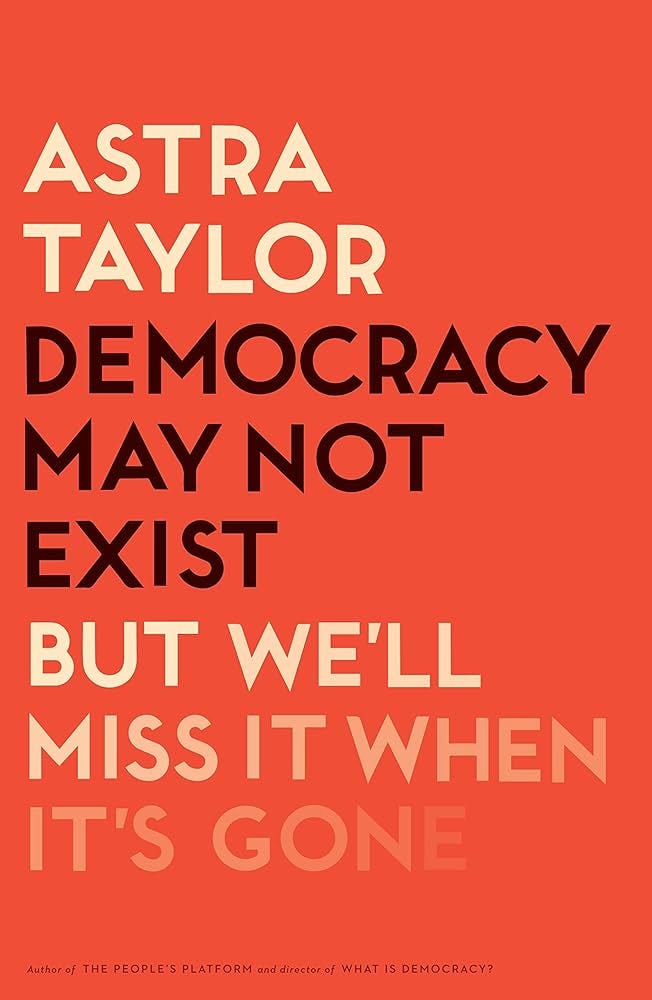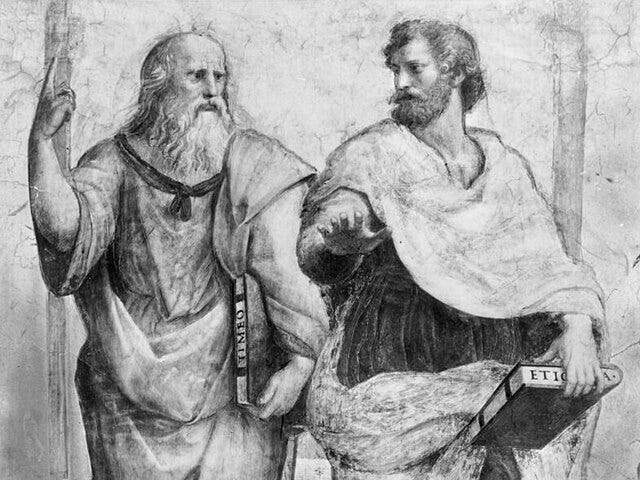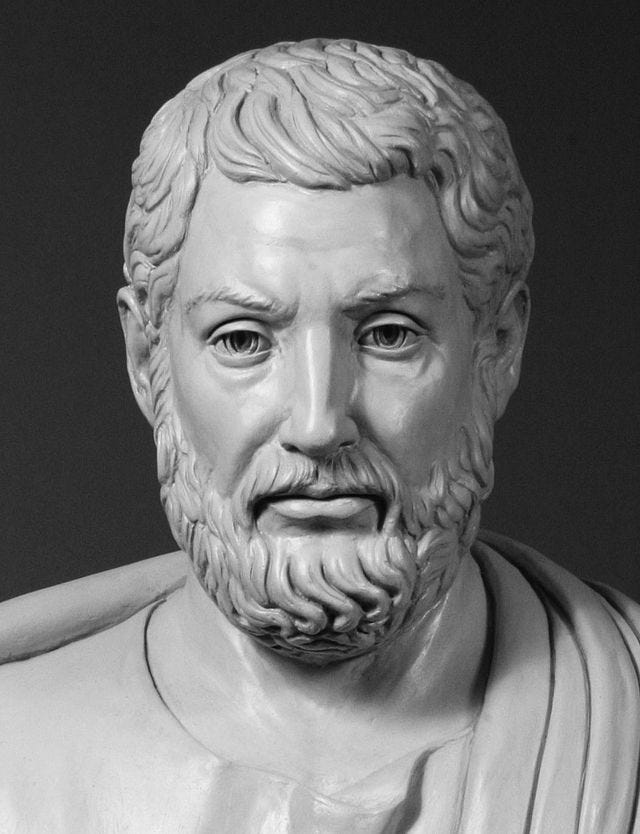We don’t need elections, we need randomness.
Obviously the US system of government is unfair and puts the needs and desires of the rich above the needs of the mass population.
Is there anything we could possibly do to make our system more fair?
Yes!
You know what's fair? Randomness.
Random chance is fair.
And it is possible to add randomness into governmental systems to reduce corruption, eliminate the power of money in politics, and improve the wellbeing of the common people.
People have known this for thousands of years, since the earliest days of democracy.

Before going any further, I would like to point you to Astra Taylor's incredible book, Democracy May Not Exist, But We'll Miss It When It's Gone, which provides much of the source material for this post. Please check this book out, it is a serious achievement.
Now, it's not widely appreciated that ancient thinkers like Plato and Aristotle despised democracy. They called it "rule by the poor," because the poor outnumber the rich.
But an even less appreciated detail about ancient Athenian democracy is that it relied on drawing lots, a lottery, to appoint juries, the Boule (their assembly), and most government posts. Why did they do that?
Quoth Aristotle himself: "The appointment of magistrates by lot is democratical, and the election of them oligarchical."
Here is something that is rarely pointed out about modern governance: Elections are fundamentally skewed in favor of rule by the few. Candidates for election require resources, mostly money, to reach the broader population in an election. Those with more resources are more likely to win. The ancient Greeks recognized that the wealthy, the eloquent, and the well-bred had significant advantages in an election. Elections perpetuate hierarchy.
Hierarchy is a ranking system that says some people are inherently more important than others, usually because of wealth or status.
And so in 508 BCE, after a people's uprising some compare to the storming of the Bastille, Cleisthenes instituted democratic reforms in Athens. Sortition and rotation of political roles meant that no single individual could dominate the way they had in the past. Because of these changes Athens had no political parties, their equivalent of a chief executive like president or prime minister served only for a single day, and professional politicians did not exist. Political service was fairly compensated so the poor could participate on equal terms with the rich. Historians believe it's possible that every male Athenian citizen served in this system at some point in their lives.
It's true that Athens was still a slave society and that women had no rights. But bringing the poor majority into the political process was, in Taylor's words, an "undeniable breakthrough." The rich hated it. This reminds me of what Michael Parenti once said: Democracy “is a wonderful invention by the people of history to defend themselves from the power of the wealthy.”

Restraining the power of wealth was the whole point of creating democracy. And the way democracy worked in its ancient Athenian formulation was with a heavy dose of randomness.
It was arch-conservative William F. Buckley who once said, “I am obliged to confess I should sooner live in a society governed by the first two thousand names in the Boston telephone directory than in a society governed by the two thousand faculty members of Harvard University.” [Toffee nose laugh] That's not so far from what we're envisioning here. People already intuit that total randos could do a better job watching out for our collective interests than elites or any of the august elected bodies of our state legislatures, city councils, or even, gasp, the US Congress.
I can imagine new representative bodies enshrined by new state and federal constitutions that use statistical sampling and randomness to mirror what our society actually looks like. These bodies could reflect our populations in every way: Gender, race, and most importantly economic status. That means that if only 1 percent of our population has extreme wealth, then rich people would only make up 1 percent of our representative bodies. True democracy. True rule by the many.
Anyone could serve. Anyone could be called by lottery to represent their fellow citizens to make decisions on our behalf. It makes for a more engaged population. It takes power out of the hands of billionaires. Or as David Van Reybrouck writes, "The risk of corruption reduces, election fever abates, and attention to the common good increases."
I can hear from the comment section already: How could this ever work??
Don't forget that we already have this element of chance in our existing system with juries. Our society already entrusts life or death decisions to totally random strangers in our legal system. We are already doing it. Figuring out ways to expand this principle of randomness into modern governance is not impossible.
But what if a child or an intellectually disabled person were selected? These issues are easily addressed by appointing someone, a guardian or other representative, to vote in that person's place, as though they were that person (but only in cases where the child or disabled person was not able to do for themselves). No one should be exempt from randomness.
Which reminds me. Do you know how the ancient Greeks defined an "idiot?" It was quite different from our modern definition. The ancient Greeks defined an "idiotis" as someone who didn't care about society, that selfishly placed their own interests before others. To democratic Greeks only an idiot would put themself first. I think that says a lot.
Make public service an honor and a privilege. Give the people power over their own destiny. Randomness Rules.
Please give a like, comment, restack, and share to help others find me here on Substack.
Let’s make them pay.
















Share this post